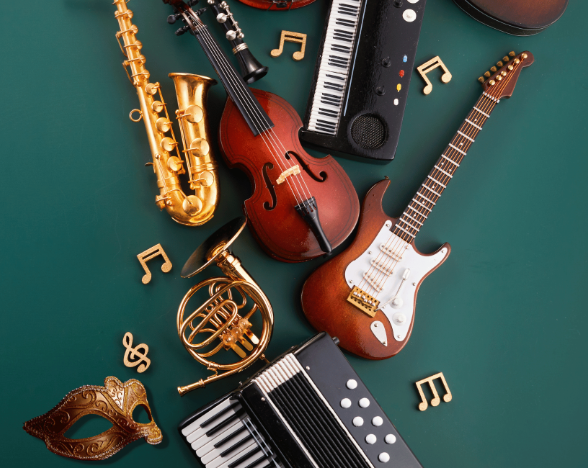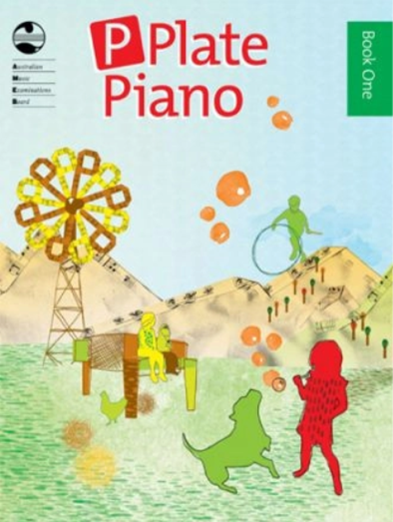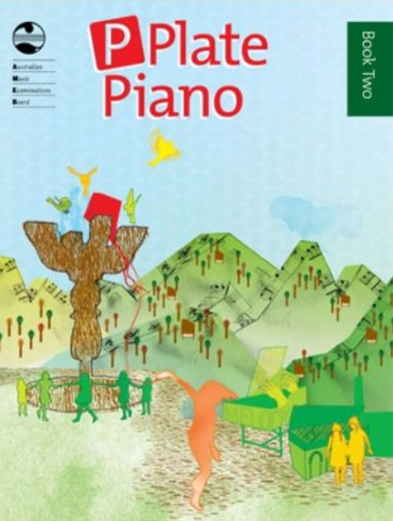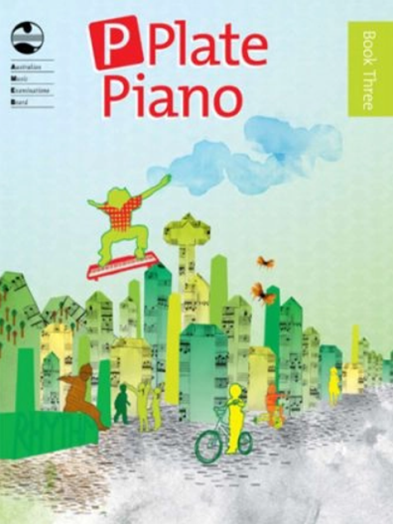
Exam types
Music examinations
-
General information
The Australian Music Examinations Board offers graded practical and online theory examinations in Music. Internationally recognised, the AMEB syllabuses are the most widely used music curricula in Australia. In Western Australia, candidates can enrol in a number of exams types from the following instrument groups:
- Piano
- Strings - including violin, viola, cello, double bass, classical guitar and harp
- Woodwind - including recorder, flute, oboe, clarinet, bassoon and saxophone
- Orchestral Brass - including horn, trumpet, trombone, bass trombone, tuba and euphonium
- Percussion
- Band - including concert band and brass band—Bb, Eb and C instruments
- Voice - including singing, singing for leisure and musical theatre
- Rockschool - including drums, vocals, piano, acoustic and electric guitar, bass, ukulele, keys and band exams.
The current AMEB Manual of Syllabuses provides guidance for all music and Speech and Drama syllabuses. In addition to the syllabus, the AMEB WA Enrollers Handbook (link to be provided) provides a complete guide to undertaking practical and theory exams in Western Australia. The current AMEB syllabus is available to purchase in-store from our State Office, selected music stores or online through the AMEB Federal Office website, www.ameb.edu.au/shop where you can purchase the entire syllabus or a pdf of the instrument or exam type you are interested in.
-
Classical Comprehensive examinations
A comprehensive exam consists of technical work (scales and exercises), studies and pieces and, depending on the level and syllabus requirements, aural tests, sight-reading and general knowledge. Within the Piano Syllabus (only), candidates can undertake a comprehensive 'collaborative' examination. The collaborative option allows candidates to demonstrate ensemble skills by presenting works with an associate artist as part of the repertoire requirements for the grade.
-
For Leisure comprehensive examinationsAMEB's 'For Leisure' syllabuses are available in piano, saxophone and singing and cater to a variety of musical tastes and interests. These syllabuses are designed for all ages and explore popular repertoire including well-loved standards from the classics, jazz standards, arrangements of movie themes, popular songs and concert arrangements. The singing for leisure syllabus includes folk songs, songs from musical theatre and film, and popular contemporary songs. For Leisure syllabuses differ from the comprehensive syllabuses in the technical work requirements, and candidates are given the choice between aural tests and sight reading. Further, no additional theory is required to pass any grade or the Certificate of Performance.
-
Classical Repertoire examinations
AMEB offers repertoire examinations for all syllabuses excluding band and ensemble performance. In repertoire exams, only pieces are heard:
- 4 pieces (3 list and 1 own choice) for Level 1 examinations
- 5 pieces (3 list and 2 own choice) for Level 2 examinations.
While technical work is still important and relevant for exam preparation, repertoire exams allow candidates to focus on their technique through repertoire and have the flexibility to choose a range of repertoire styles, including own choice works. Similar to comprehensive exams, repertoire exam candidates must still achieve a pass grade in particular grades of musicianship, theory of music or music craft (or equivalents) in order to complete the requirements for practical examinations at Grade 6, 7 and 8 to receive their certificate.
-
For Leisure repertoire examinations
AMEB's 'For Leisure' syllabuses are only available in piano, saxophone and singing. In a For Leisure Repertoire exam, a candidate is required to perform a total of 4 works, 2 list pieces and 2 own choice.
While technical work is still important and relevant for exam preparation, repertoire exams allow candidates to focus on their technique through repertoire and have the flexibility to choose a range of repertoire styles, including own choice works. No additional theory is required to pass any grade or the Certificate of Performance.
-
First Steps
First Steps provides a comprehensive introductory non-graded examination experience for piano, violin, viola and guitar prior to AMEB graded exams. No books are required to be purchased and booklets are provided to teachers as a free resource, supporting a smooth first exam experience. First Steps accustoms beginners to presenting technical work and pieces, aural tests and general knowledge, setting them up for success as they approach AMEB graded examinations.
-
P Plate Piano
P Plate Piano offers a non-graded assessment experience that focuses on encouragement, performance, participation and preparation for AMEB Preliminary level piano. Engagement occurs with classical to contemporary repertoire across a three-book series. Candidates can complete one, two or three exams, whereupon completion of all three a P Plate licence is awarded. With almost 20 pieces in each book, P Plate Piano introduces students to a range of performance styles and technical challenges, carefully graded for musical development. Find out more.



-
Performance EvaluationPerformance Evaluations are a non-graded AMEB WA service available to any person seeking an independent assessment of their performance on an instrument or voice, in a more relaxed evaluation setting. Candidates receive a constructive written report by a professional examiner, providing an independent benchmark against which to measure progress. It is suitable for all grades and levels. Due to a variety of reasons, candidates sometimes find themselves unprepared come exam time. In this situation, the AMEB WA office would be pleased to convert the scheduled examination to a Performance Evaluation. Please call the office to arrange this conversion.
-
Ensemble performance examinationsEnsemble performance examinations are available for string, woodwind, brass, percussion or other mixed ensembles. The Ensemble Performance Syllabuses enable ensembles to be examined and focus on works for instruments in the specified family; however, works presented under each subject may include other instruments, for example, Piano, Guitar, Harp and Percussion. Similar to other syllabuses, these syllabuses are broken down into 3 levels of Grades 1–Diploma.
Speech and drama examinations
-
General information
Australian Music Examinations Board offers graded practical and online theory examinations in Speech and Drama, with the AMEB Syllabus being one of the most widely used Speech and Drama curricula in Australia.
Assessing students from Preliminary to Diploma levels, candidates can study Voice and Communication, Speech and Performance, Drama and Communication, and Speech and Performance Theory.
-
Voice & Communication
Voice and Communication exams are designed to develop voice and communication skills both for everyday life and the professional sector, and exams are offered from Preliminary grade to associate. The exams are designed to develop confidence in:
- the skills to read effectively
- speaking with clarity
- making presentations to a variety of audiences
-
Speech & PerformanceSpeech and Performance exams are designed to develop interpretative and performance skills across a broad spectrum of styles, genres and eras, and are offered from Preliminary to Licentiate Diploma level. Candidates will achieve secure vocal technique, integrated physical response and imaginative and insightful presentation of texts. They will develop the skills required for interpreting to audiences in a variety of performance spaces.
-
Drama & Communication
The Drama and Communication Syllabus offers a series of examinations in the area of performing arts. The exams are especially designed for a wide range of drama and speech learning environments and provide for creative flexibility within these contexts. The syllabus should appeal to both classroom Drama teachers and Speech and Drama teachers working in a private studio.
It is a multi-optional syllabus and candidates may present for examination:
- in one large class group in which sub groups could work together to flesh out the focus and performance for the chosen grade—these students would present one examination lasting 30 minutes (or more according to level)
- in pairs (duo)
- as individual candidates.
-
Speech and Performance Theory
Speech and Performance Theory exams are an opportunity for candidates to show their understanding of the functional framework of speech and performance, and are offered from 1st grade to 7th grade. The exams are designed to have relevance for a wide range of candidates, focusing on progressive consolidation of knowledge relating to dramatic performance, oral interpretation and spoken interaction in a variety of communication situations.
For more information on any of the Speech and Drama Syllabuses, please refer to the current Speech and Drama Manual of Syllabuses or contact the AMEB WA state office.
The current AMEB Speech and Drama Manual of Syllabuses are available to purchase online from the AMEB website, www.ameb.edu.au/shop
Online theory examinations
-
General information
Australian Music Examinations Board offers graded online and written examinations covering the theoretical aspects of music.
Online examinations and courses for all theory syllabuses are available from the AMEB website, www.ameb.edu.au
When an online theory examination is purchased, the candidate will be issued with an Exam Key and Exam PIN, unique codes which, together, give access to practice and official exams. Unlimited practice tests are available with each exam purchase. Please note, the Exam Key expires 12 months after purchase. Extensions of 30 days may be purchased through Federal Office.
A summary of online theory offered is outlined as follows:
Theory of Music – Grade 1 to Grade 6
- Focuses on the creative aspects of Music Theory and has no aural component.
Music Craft – Preliminary to Grade 6
- Includes both written and aural components throughout the syllabus.
- For class groups only Grade 5 and 6 examinations are available in paper-based format on application to [email protected]
- Provides an alternative way of teaching theoretical and aural aspects of music in each grade.
Musicianship – Grade 1 to Grade 6
- Examinations introduce an aural component from Grade 4.
- The syllabuses for Theory of Music and Musicianship are similar from Preliminary to Grade 4.
For more information on online theory, visit the AMEB website, www.ameb.edu.au
-
Diploma theory examinations
Teaching, Musicianship and Theory of Music Diploma written exams are available on application. Contact the AMEB WA office at [email protected] to enrol.
Video examinations
In addition to face-to-face examinations, AMEB WA offers examinations by video recording in the following syllabuses up to grade 8:
- Repertoire
- For Leisure Repertoire (Piano, Singing, Saxophone only)
Video exams were introduced as a temporary solution for pandemic purposes but have been retained to help all learners access exams. This includes ensembles and choirs, which may find travelling to an AMEB exam centre cost and time prohibitive. Video exams have proven advantageous to remote candidates and those who experience extreme performance anxiety, and may otherwise avoid the examination experience.
Enrollers are supported with step-by-step instructions on creating and uploading Video Exam content, with the office on hand to provide support if required. View the Video Exam instructions, How to Submit Your Video Exam
Rockschool examinations
Get in touch
The WA State Office is located on the Claremont campus of The University of Western Australia, on the corner of Princess and Goldsworthy Roads in Claremont. The office is at the eastern end of the stone heritage-listed building. Visitors are asked to park in Car Park 2 (paid parking) accessible from Goldsworthy Road and to please observe and comply with all signage.
Office location
UWA Claremont Campus
Cnr Princess and Goldsworthy Roads, Claremont WA 6010
Open Monday to Friday
9.00am-4.30pm
Mailing address
M421
The University of Western Australia 35 Stirling Highway, Crawley WA 6009
